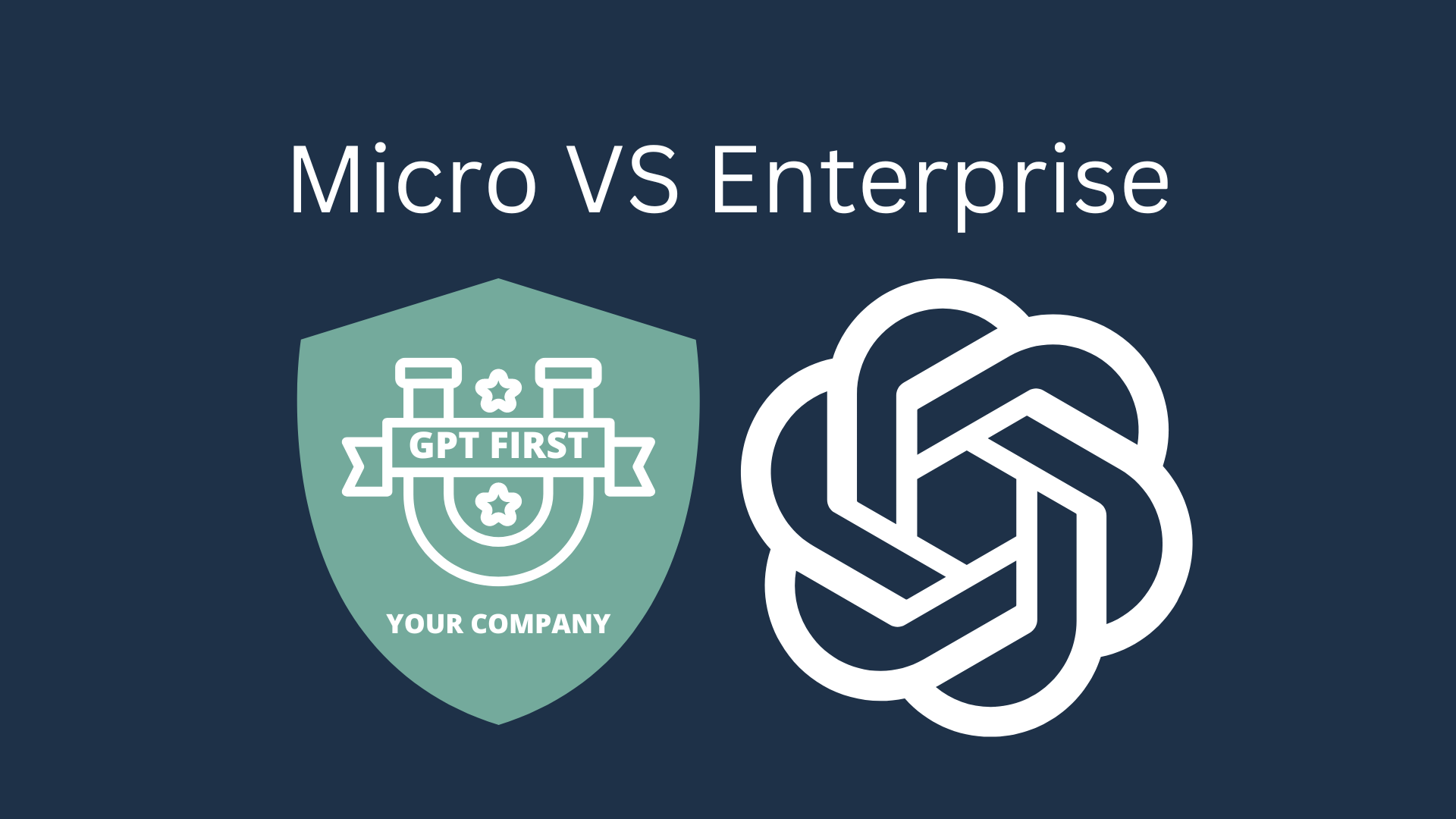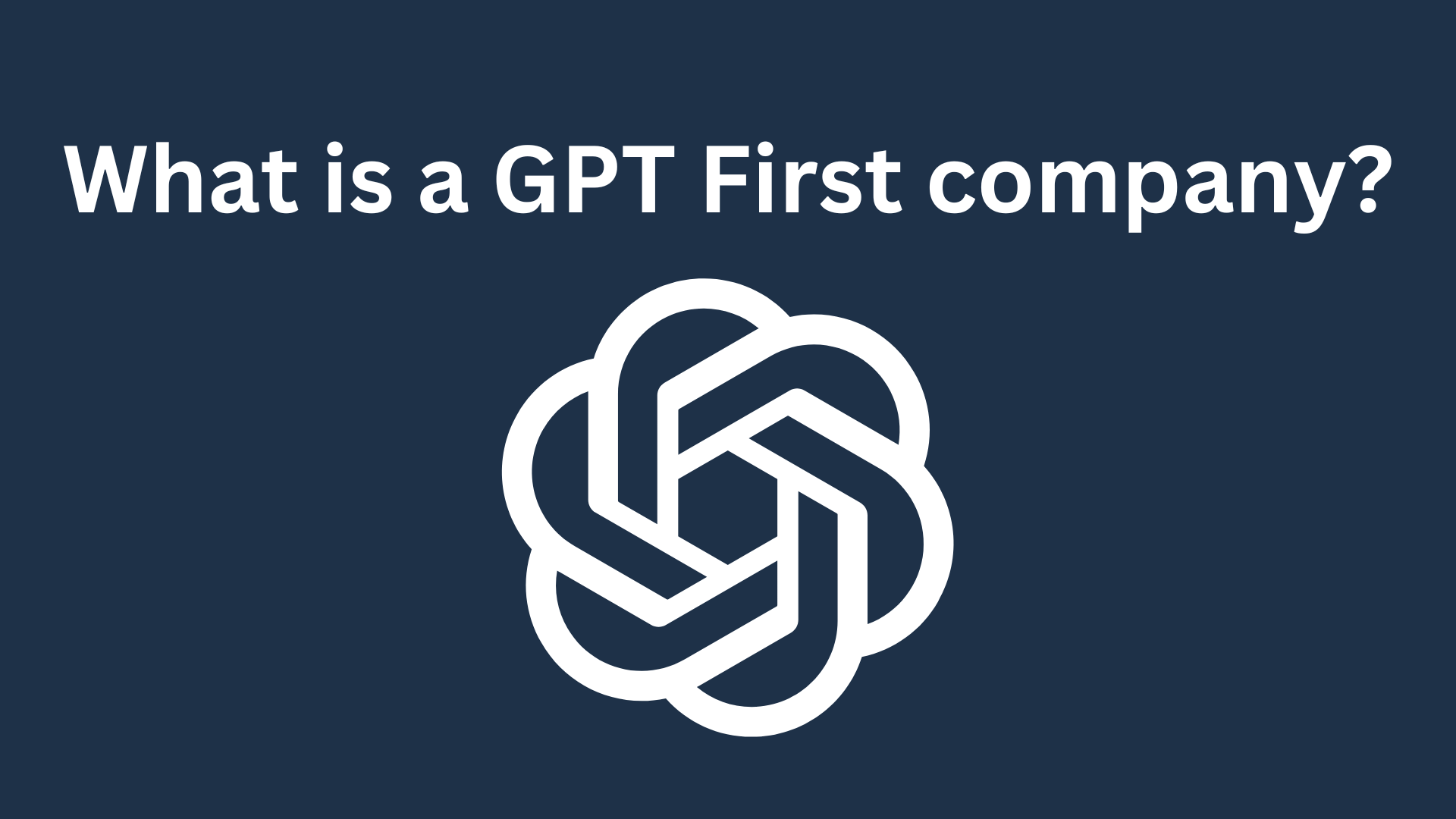
The AI Generation: How Small Companies Can Outpace Enterprises with GPT Technology
Introduction: The rise of artificial intelligence (AI) is bringing forth a new generation of small, agile businesses that can compete with established enterprises on a large scale. These “micro-companies” are leveraging AI and GPT technology to stay lean and efficient, allowing them to deliver services on par with their larger counterparts. In this article, we explore how AI is reshaping the competitive landscape, and why new companies are better positioned to adapt and thrive in this rapidly evolving environment.
The GPT Revolution and Its Impact on Business: The groundbreaking GPT technology has transformed the way businesses operate, offering advanced AI-driven tools that enable companies to optimize their processes, drive innovation, and gain a competitive edge. By implementing GPT technology in both internal and external operations, small companies can achieve the efficiency and scale of enterprise organizations with a fraction of the workforce. This shift is empowering new businesses to compete in markets once dominated by large corporations, ultimately disrupting the traditional business hierarchy.
Why New Companies Have the Advantage:
- Agility: As startups and small businesses, new companies are inherently agile and flexible, allowing them to quickly adopt GPT technology and capitalize on its benefits. Established enterprises, on the other hand, often face challenges in reorganizing their existing processes and infrastructure to accommodate AI-driven tools, making it difficult for them to keep up with the pace of innovation.
- Cost Efficiency: With fewer employees and a leaner organizational structure, small companies leveraging GPT technology can operate at a lower cost than large enterprises. This enables them to be more competitive in terms of pricing and resource allocation, ultimately delivering greater value to their customers.
- Innovation: The integration of GPT technology encourages a culture of innovation within small companies. As these businesses are not weighed down by legacy systems or outdated practices, they can quickly experiment with new ideas, iterate rapidly, and deploy cutting-edge solutions to meet evolving market demands.
- Personalization: GPT technology allows small companies to deliver highly personalized experiences to their customers, despite having a smaller workforce. By harnessing the power of AI-driven tools, these businesses can better understand their customers’ needs and preferences, tailoring their offerings to create a more targeted and satisfying customer experience.
Preparing for the Future: Becoming a GPT First Company To capitalize on the advantages that GPT technology offers, new companies should aim to become GPT First businesses. This means integrating GPT technology into every aspect of their operations, from product development and customer service to internal processes and decision-making. By adopting this approach, small companies can not only compete with established enterprises but also lead the way in driving the widespread adoption of AI and GPT technology across various industries.
Conclusion: The AI generation is ushering in a new era of business, where small companies can outpace established enterprises by harnessing the power of GPT technology. By becoming GPT First companies and leveraging the inherent advantages of their size and agility, these micro companies are poised to reshape the competitive landscape and redefine what it means to be a successful business in the age of AI.

